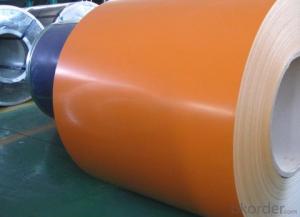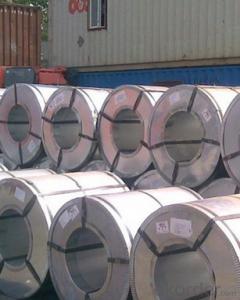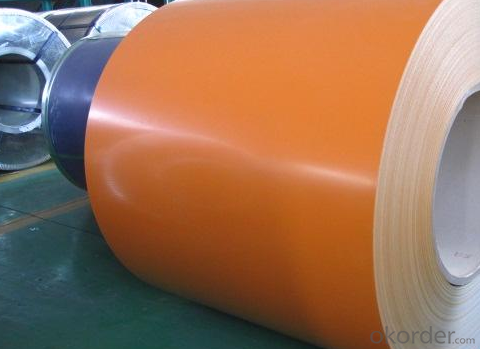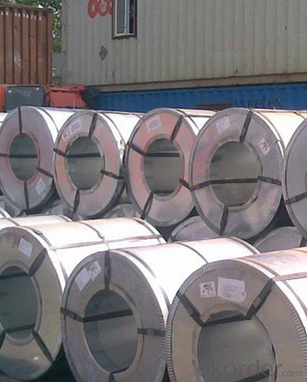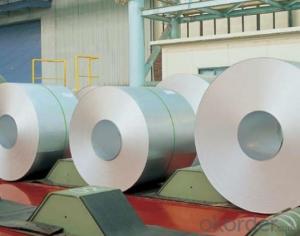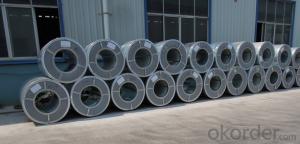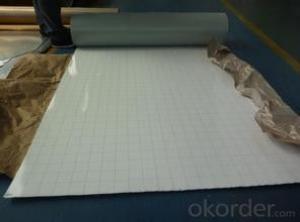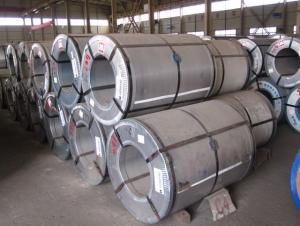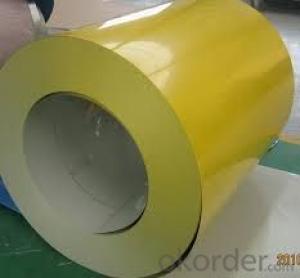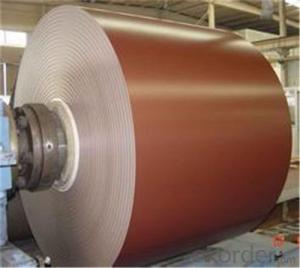Thickness: 0.15 - 2.0 mm
Technique: Hot Rolled
Application: Container Plate
Surface Treatment: Galvanized
Secondary Or Not: Non-secondary
Certification: CE
Special Pipe: Thick Wall Pipe
Alloy Or Not: Non-alloy
Section Shape: Other
Galvanized Steel Coil Hold Rolled High-strength CNBM
- Loading Port:
- Guangzhou
- Payment Terms:
- TT OR LC
- Min Order Qty:
- 20 m.t.
- Supply Capability:
- 3000 m.t./month
OKorder Service Pledge
OKorder Financial Service
You Might Also Like
1.Quick Details:
2.Packaging & Delivery
| Packaging Details: | standard package |
|---|---|
| Delivery Detail: | 1-4 week |
cold rolled galvanizing steel coil
galvanized iron steel coil
Thickness | 0.15mm--2.0mm |
Width | 50--1250mm |
Zinc Coating | 40gsm—275gsm |
Spangle | Big, small regular spangle and zero spangle |
Surface Treatment | Chromate, Galvanized, Skin Pass, Passivity and Oiled(un-oiled) |
ID | 508mm or 610mm |
Coil Weight | 3--7 Metric Tons and as requirements |
Production | 12,000 metric tons per month |
More information of Galvanized Steel Coils/GI/PPGI/HDG | |
Payment Term | T/T or L/C (We usually charge 30% of the deposit first.) |
Delivery Port | Qingdao Port or Tianjin Port |
Delivery Time | Within 20 days after receipt of T/T or L/C |
MOQ | 25 metric tons or one 20 feet container |
Application | General use, Color coating, Corrugated Roofing making, Outside of the buildings Structure, Deep Drawing and etc. |
Ambition | Reliable product, Competitive price, On-time delivery and High standard service. |
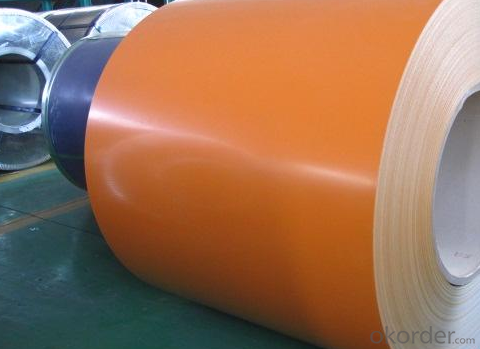
5.What is the application of Steel Coil?
There are two sides,one is out side: Workshop, agricultural warehouse, residential precast unit, corrugated roof, roller shutter door, rainwater drainage pipe, retailer booth;the other is inside: Door, doorcase, light steel roof structure, folding screen, elevator, stairway, vent gutter.
- Q: I'm looking for a good source as to the 'structural formula' of steel. I'm not quite sure if that's what it's actually called, but here's a link to what I'm looking for.
- That's a very good question. What you need to do is run down to your local university and sign up for a undergraduate degree in Civil Engineering and after you finish that (4 to 5 years) then you need to sign up for a masters degree in Structural Engineering (2 to 3 years). Then, get yourself a structural engineering job and in 4 years you will be able to test to become a Professional Engineer. Whew, after that you will get paid very well as a tower designer.
- Q: I've been looking for lots of info on this steel. Cold Steel uses it now in their knives replacing the AUS-8 steel. I was hoping somebody had a knife with this steel who could give me some real first hand knowledge not just numbers. Thanks!
- Before I answer I must let you know that I have been a knife collector for 17 years, and have a great assortment of specialty and antique folding knives. As for your question, I wouldn't worry too much about it. The first answerer is very knowledgeable in this category. But in the real world, the steel chemistry of folding knives will never be as important as that of fixed blades or kitchen knives. The fact that manufacturures go through great lengths to advertise their superior steel is just for sales and bragging rights. When it comes down to it, a pocketknife might be useful, but it is never the best tool for the job. It is a compomised design from the beginning. If you need to cut a steak, a steak knife will do. A box cutter works best on cardboard. A razor works best for shaving, wire cutters best for cutting wire, an axe for chopping wood...I could go on. A pocket knife is never going to perform better than the real thing ( although I do prefer the can openers on Swiss army knives than real can openers). As for self defense, minus the concealability factor, a folding knife sucks compared to a fixed blade. But if you were to pull one out during an extreme circumstance, I doubt anyone is going to be effected by the Rockwell hardness.
- Q: Looking for an insight here into what hiking with steel toe-capped boots would be like, as I saw a nice pair of steel toed magnums that I plan to use for my future hiking (which I will be doing a fair amount of in the future). They seemed fairly comfortable, but I am curious into what others have to say and what might be known of this sort of approach. Thanks in advance.
- They are very heavy not like hiking boots but it is your choice
- Q: How are steel coils inspected for quality control?
- Steel coils are inspected for quality control through a series of rigorous tests and inspections. This typically involves visual checks for any surface defects, such as scratches or dents, as well as measurements of dimensions, weight, and thickness. Additionally, non-destructive testing techniques like ultrasonic or magnetic particle testing may be conducted to detect internal flaws or inconsistencies in the steel. These comprehensive inspections ensure that only high-quality steel coils are approved for use.
- Q: i see a lot of connexes say repair only with corten steel. what is the difference between corten steel and regular steel. and if i was going to stick weld it what type of electrode would i use?and while i'm at it what is the best electrode to use when welding galvenized steel?
- 6010 and 6011 Electrodes for welding galvenized steel. Weathering steel, best-known under the trademark COR-TEN steel and sometimes written without the hyphen as Corten steel, is a group of steel alloys which were developed to obviate the need for painting, and form a stable rust-like appearance if exposed to the weather for several years. The corrosion-retarding effect of the protective layer is produced by the particular distribution and concentration of alloying elements in it. The layer protecting the surface develops and regenerates continuously when subjected to the influence of the weather. In other words, the steel is allowed to rust in order to form the 'protective' coating. For welding corten steel: 1A.W.S ClassificationE 7018 - 1AWS A 5 - 1 - 78 2IS classificationE 5424 JXIS 814 (Part I II)H 3BS classificationE 51.54 B 12 17HBs 639 - 1976
- Q: What are the common coil widths and thickness combinations available for steel coils?
- The common coil widths and thickness combinations available for steel coils vary depending on the specific requirements and industry standards. However, there are some standard sizes that are commonly available in the market. For coil widths, the most common standard sizes range from 600mm to 2000mm. These widths are widely used in various industries such as automotive, construction, and manufacturing. However, custom widths are also available to meet specific project needs. As for the thickness combinations, steel coils are typically available in a range of thicknesses. The most common thicknesses for steel coils are between 0.4mm and 3mm. However, thicker or thinner options are available depending on the specific application. It is important to note that these standard sizes and thickness combinations may vary based on the specific steel grade, manufacturing process, and the supplier's capabilities. It is always recommended to discuss the required specifications with the supplier or manufacturer to ensure the availability of the desired coil widths and thickness combinations.
- Q: i would like to know of any companies who buy shredded scrap steel
- We are one of the biggest steel mills in Asia. Under our group, we have steel mills in Thailand and Bangladesh. On the monthly basis, we purchase steel scrap HMS1/2 80:20 and the shredded ISRI210/211, ISRI211 by bulk and 20' container to Thailand and Bangladesh. Due to the limitation of our existing shredded steel scrap supplier, we need to get more supply of the shredded. Please contact us or offer us of ISRI 210/211 or ISRI211 CFR Chittagong, Bangladesh with 500mt - 2000mt per shipment by 20' container. If any questions, please feel free to contact us.
- Q: What are the main characteristics of steel coils?
- The main characteristics of steel coils include their high strength and durability, ability to withstand extreme temperatures, excellent corrosion resistance, and superior formability. Steel coils are also known for their consistent and uniform thickness, smooth surface finish, and wide range of available sizes and grades. Additionally, they are easy to transport and process, making them highly versatile for various industrial applications.
- Q: Can steel coils be stretched?
- No, steel coils cannot be stretched as they are already tightly wound and have limited flexibility.
- Q: What are the applications of steel coils in automotive manufacturing?
- Steel coils have a wide range of applications in automotive manufacturing due to their unique properties and characteristics. They are commonly used in various parts and components of vehicles, offering numerous benefits and contributing to the overall performance, safety, and reliability of automobiles. One of the primary applications of steel coils in automotive manufacturing is in the production of body panels. Steel coils are used to create the outer body structure of vehicles, including doors, hoods, fenders, and roofs. The high strength and durability of steel make it an ideal material for these components, as it provides protection against impacts and enhances the overall structural integrity of the vehicle. Steel coils are also used in the manufacturing of automotive chassis and frames. The strong and rigid nature of steel makes it an excellent choice for these critical components, as it can withstand heavy loads and provide stability to the vehicle. Steel coils ensure that the chassis and frames have the necessary strength and stiffness to support the weight of the vehicle and withstand the forces experienced during driving. Moreover, steel coils are utilized in the production of various suspension and steering components, such as springs, stabilizer bars, and control arms. These components require high strength and resistance to fatigue, as they are subjected to constant stress and vibrations. Steel coils provide the necessary toughness and flexibility to these parts, ensuring smooth and controlled vehicle handling. In addition, steel coils are used in the manufacturing of engine parts and exhaust systems. The high-temperature resistance and corrosion resistance of steel make it an ideal material for these applications. Steel coils are formed into various shapes, such as tubes and pipes, and used to create exhaust manifolds, catalytic converters, and mufflers. They play a crucial role in improving the performance and efficiency of the engine, as well as reducing harmful emissions. Overall, steel coils are vital in automotive manufacturing due to their strength, durability, and versatility. They are used in the production of body panels, chassis, suspension components, engine parts, and exhaust systems. The use of steel coils in these applications ensures that vehicles are safe, reliable, and perform optimally, making them an indispensable material in the automotive industry.
Send your message to us
Galvanized Steel Coil Hold Rolled High-strength CNBM
- Loading Port:
- Guangzhou
- Payment Terms:
- TT OR LC
- Min Order Qty:
- 20 m.t.
- Supply Capability:
- 3000 m.t./month
OKorder Service Pledge
OKorder Financial Service
Similar products
Hot products
Hot Searches
Related keywords
